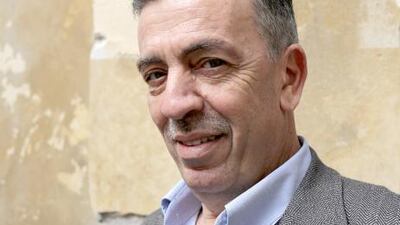Three of the sixth finalists on the fifth annual International Prize for Arabic Fiction, announced today, are previous nominees.
Tunisia’s Habib Selmi, as well as Lebanon’s Jabbour Douaihy and Rabee Jaber, all returned to the competition’s shortlist alongside debutants Algeria’s Bashir Mufti and Egyptians Nasser Iraq and Ezzedine Choukri Fishere.
The winner will be announced at a ceremony in Abu Dhabi on March 27; on the eve of the Abu Dhabi International Book Fair.
The winner will receive US$50,000 (Dh184,000) in addition to the English translation and publication of their novel, while the shortlisted authors will all receive $10,000.
This year’s shortlisted novels deal with eclectic themes ranging from exile and personal identity to social and political upheaval.
Iraq's The Unemployed, for instance, is set in Dubai and follows a young Egyptian male as he searches for a job before finding himself imprisoned for the murder of a prostitute, while Douaihy's The Vagrant focuses on the Lebanese civil war and told through the eyes of a young man uprooted by the conflict.
The announcement also shed light on this year’s judging panel, which in previous years had remained anonymous.
Chairing the panel is famed Syrian writer and critic Georges Tarabichi, who is joined by four other regional literary personalities including Lebanese literary critic Maudie Bitar and Egyptian academic and woman’s rights activist Professor Hoda Elsadda.
“In these novels the authors’ show an innovative use of new styles to describe the social and historical variety of the Arab world,” Tarabichi said, “as well as giving premonitions of the current peoples’ movements, displayed by the concentration on corruption and tyranny formerly prevalent in the Arab world".
Last year the prize made headlines when it announced its first joint winners as well as the first female author to win.
Joining the list of distinguished winning titles last year were The Doves' Necklace by Saudi Author Raja Alem and The Arch and the Butterfly by the Moroccan writer Mohammed Achaari.
This year's shortlisted titled were chosen from a previous long-list of 13 entries announced in November last year.
The competition this year received 101 submissions from 15 countries across the Arab world.


